Mid-Autumn Festival (Chinese: 中秋节 / 中秋節, zhōngqiūjié), Mid-Autumn Festival, Moon Festival - one of the most beautiful and poetic holidays in China. In the modern urban traditions of China - this is an evening admiring the full moon, accompanied by a treat of "moon cakes".
In 2019, the celebration of the Mid-Autumn Festival in China fell on September 13th.
Weekends from September 13 to September 15 inclusive, only 3 days off.
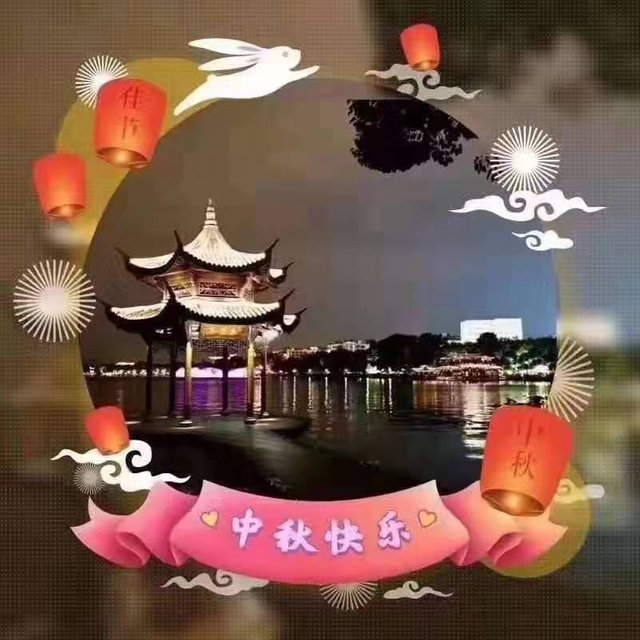
The romantic Mid-Autumn Festival (Zhongjujie) is celebrated on the lunar calendar by millions of Chinese people living in mainland China, Hong Kong (Hong Kong), Aomen (Macau), Taiwan, as well as in overseas Chinatowns.
In significance, this holiday is second only to the New Year, marking the middle of the year cycle in the representation of the peoples of East Asia. According to the lunar calendar, the Mid-Autumn Festival always falls on the 15th day of the 8th moon, and in terms of the dates of our modern solar Gregorian calendar in 2019 in China, Mid-Autumn Festival is celebrated on September 13 (14). It is believed that on this day the lunar disk is "the brightest and round of the year." The image of "completeness" has several different meanings. On the one hand, this is the time to complete the harvest. On the other hand, the moon is a symbol of the feminine. Thus, the fullness of the moon has a symbol of fertility.
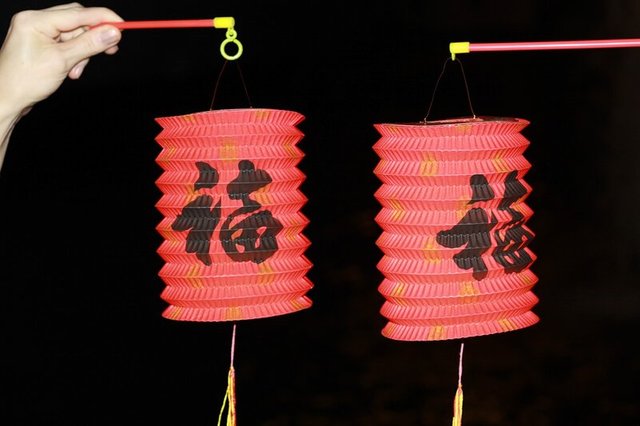
This holiday belongs to the traditional, and this means that it was celebrated as a festivities on the occasion of the harvest and was done since ancient times, when the length of time a year for the Chinese was scheduled for 24 agricultural seasons. It is understandable, because China is an ancient agricultural civilization. According to the agricultural, "peasant" calendar, the time period from the beginning of August to the beginning of November is reckoned to fall months.
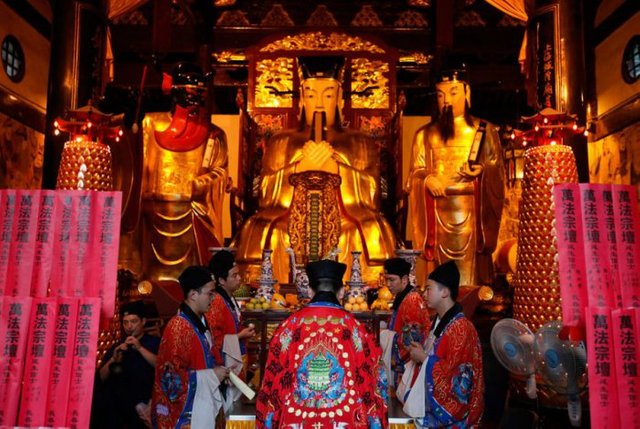
The history of this holiday goes back to the ancient rites of sacrifice: in spring, the rulers worshiped the spirit of the Sun, and in the fall they sacrificed to the Moon. In historical records of the Zhou era (approximately XI century BC - 256 BC) there are references to Zhongqiu - Mid-Autumn. Then the intelligentsia, too, imitating the princes, on the day of Mid-Autumn also began to admire the round and clear moon, arrange sacrifices and treat this day as a holiday. This custom, having spread among ordinary people, has become a traditional event, and by the time of the Tang Dynasty (618-907), a stable Zhongjujie festival had formed. During the Song Dynasty (960-1279), the Mid-Autumn Festival ceremonies became even more solemn, and during the Ming and Qing Dynasties (1368-1911), Zhongjujie was already one of the main Chinese holidays.
The ritual side of the festival is most widely reflected in the incense burning of Chanye, the mythical resident of the Moon.
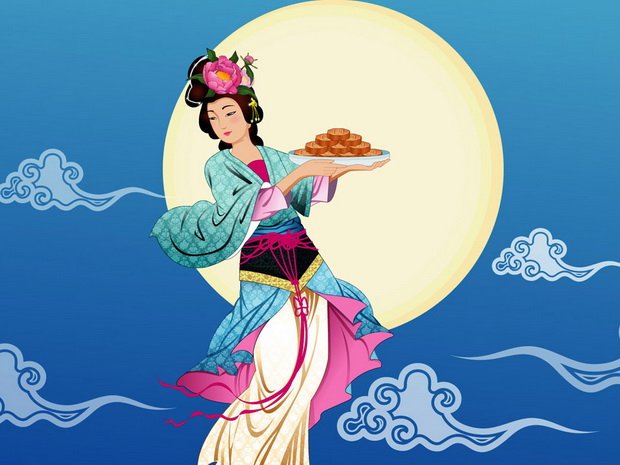
The legend of Hou Yi and Chang'e (one of many).
There is a legend in the people associated with this holiday, that in time immemorial, ten suns appeared in the sky. Because of the terrible drought, all crops died out, the life of the people became unbearable. There lived in those days a hero named Hou Yi, he possessed incredible strength. Hou Yi climbed to the top of Kunlun Mountain, pulled a bowstring, shot arrows at nine suns, and they fell. He ordered the remaining sun to rise and fall in time. Shooter Hou Yi, whose heroic deed brought great happiness to people, earned the respect and love of the people. Many fans of Hou Yi went to his disciples, one of them was a man named Panmen.
Hou Yi had a beautiful wife, whose name was Chang'e. One day, Hou Yi went to Kunlun Mountain to visit his friend there. On the way, he met the heavenly ruler Sivanma. She gave Hou Yi the elixir of immortality and said that after drinking the elixir, Hou Yi could immediately rise to heaven and gain eternal life. But Hou Yi did not want to leave his beloved Chang'e, so he gave the elixir of immortality to his wife for storage. Panman accidentally saw Chang'e hiding the elixir of immortality in a jewelry box.
Once, when Hou Yi was not at home, Panmen came to Chang'e. Threatening with a sword, he began to demand from Chang'e the elixir of immortality. Chang'e understood that she was not a rival to Panmen. Therefore, she had no choice but to swallow the elixir of immortality herself. Then miracles began to happen. Chang'e took off from the earth, flew out the window and rushed to the moon. Panman ran away with nothing.
Shooter Hou Yi was heartbroken when he found out what had happened. Peering into the night sky, Hou Yi called the name of his beloved. Suddenly he was surprised to notice that on this night the moon was especially clear and bright, and a shadow appeared on it, similar to Chang'e. Hou Yi did his best to rush after the Moon, but, as he tried, he could not overtake the Moon.
Hou And missed his wife every day. He ordered to establish in the garden, in which Changye liked to walk, a table for the censer, to put sweets and fruits beloved by his wife on him as a sacrifice. Upon learning that Chang'e had landed on the Moon and gained immortality, people began to set incense burners under the Moon one by one and asked Chang'e to send them happiness and prosperity. Since then, the people spread the custom of worshiping the Moon on the day of Mid-Autumn.
In different regions of China, uneven customs associated with the Zhongqiujie festival have been preserved, but all these customs reflect the boundless love of people for life and their dream of a bright future. Nowadays, people perform the most important rites - on this day it is customary to admire the beauty of the moon and eat "yuebin" - moon cakes.
It is important for us to remember one thing, namely, that every year the Mid-Autumn festival coincides with the full moon, and the moon, as the main carrier of one of the 2 types of energy in the Chinese worldview, is symbolically connected with a life-preserving vector, with the change of phases and cycles, with the completion of which period and at the same time as the beginning of a new period of time. A certain completeness of times is achieved, the combination of fragmented and scattered, the reunification of the parts into a whole. This is why the full moon is a symbol of all reunited family members gathered together.
On the 15th of each month according to the lunar calendar, the moon becomes round, large and clear. And the day of Mid-Autumn, that is, the 15th day of the 8th month falls on the fertile period, when crops, vegetables and fruits ripen. In the evening, on the Mid-Autumn Festival, relatives and friends gather in the open air, set tables with all kinds of dishes, conduct lighthearted conversations, enjoy the charm of a moonlit night. Now in various picturesque places of China on the Zhongjujie festival events are held at which people admire the beauty of the moon.
But what about those who are away from home or are separated from loved ones and relatives? On this account, there is such a tasty thing as "moon cake".
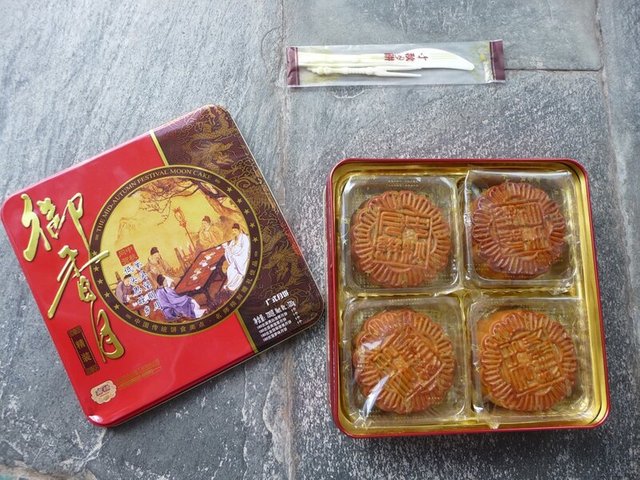
But about the moon cakes and traditions of celebrating this holiday, I will continue tomorrow....
This post was shared in the Curation Collective Discord community for curators, and upvoted and resteemed by the @c-squared community account after manual review.
@c-squared runs a community witness. Please consider using one of your witness votes on us here
Downvoting a post can decrease pending rewards and make it less visible. Common reasons:
Submit
Thank you!
Downvoting a post can decrease pending rewards and make it less visible. Common reasons:
Submit
Congratulations @beikerlanna! You have completed the following achievement on the Steem blockchain and have been rewarded with new badge(s) :
You can view your badges on your Steem Board and compare to others on the Steem Ranking
If you no longer want to receive notifications, reply to this comment with the word
STOPTo support your work, I also upvoted your post!
Vote for @Steemitboard as a witness to get one more award and increased upvotes!
Downvoting a post can decrease pending rewards and make it less visible. Common reasons:
Submit
Thank you!
Downvoting a post can decrease pending rewards and make it less visible. Common reasons:
Submit